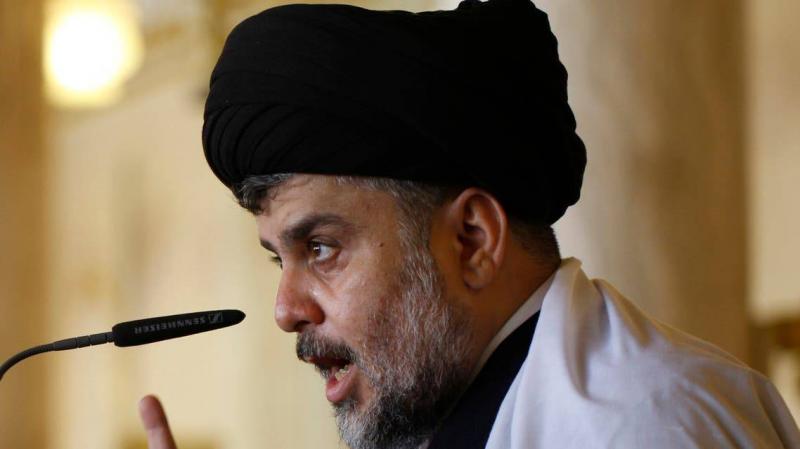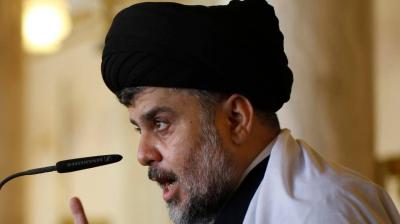After calling on its MPs yesterday to refrain from voting in the upcoming parliamentary session for Hoshyar Zebari, the candidate of the allied Kurdish Democratic Party, unless he meets the required conditions, the leader of the Sadrist movement, Muqtada al-Sadr, surprised the Iraqis by announcing the decision not to attend the anticipated session on February 7. The Sadrist bloc announced today, Saturday, its boycott of the session scheduled for next Monday to elect the President of the Republic.
The head of the largest bloc in the House of Representatives, MP Hassan al-Adhari, stated in a press conference, as reported by the Iraqi News Agency (INA), that the Sadrists will boycott Monday's session. He also added that, by Sadr's order, negotiations with political blocs regarding the formation of the government have been frozen, except for the first deputy speaker of the council.
Current Iraqi President and candidate of the Patriotic Union of Kurdistan, Barham Salih, commented, saying, "The current situation is no longer acceptable; we must support the peaceful democratic process and begin forming a capable new government."
"Solid and Cohesive Coalition"
Sadr's position today came despite Zebari affirming last night that the Kurdish coalition with the Sadrist movement and the Sovereignty Alliance is "strong and cohesive," according to official news agency reports. However, he expressed concern about the "Shia-Shia conflict," referring to the rift between Sadr and the Coordination Framework, which includes the Conquest Alliance, Nouri al-Maliki, and other Iran-aligned parties.
Sadr's move also coincided with ongoing Kurdish disagreements over different candidates, alongside the Sadrist conflict with the Coordination Framework over government formation. While Sadr, who won the largest share in the parliamentary elections on October 10, is opposed to forming a national majority government (since he leads the largest bloc) and is excluding some figures from the Coordination Framework, the latter is insisting on participating in the government and, at a minimum, approving its leader.
It is noteworthy that the Sadrist leader gained 73 parliamentary seats in the elections, while the Conquest Alliance lost around 10 seats compared to the previous elections. The Progress Alliance secured 37 parliamentary seats, and the State of Law Coalition obtained 33, while the Kurdish Democratic Party gained 31.
Sadr formed an alliance with "Progress," led by Muhammad al-Halbusi, the Kurdish Democratic Party, and "Extension" to elect the Speaker of Parliament last month, but negotiations for forming the government appear more complicated. In a country dominated by quota-based distribution, election winners often have to weave alliances and understandings to form a government that is traditionally, by convention since post-2003, led by a Shia, while the parliament is headed by a Sunni, and the presidency is reserved for the Kurds.




